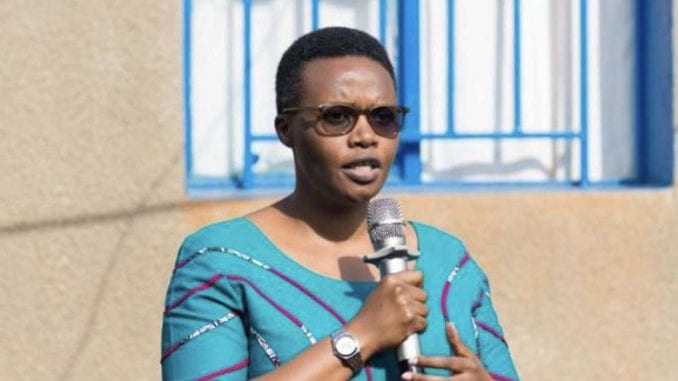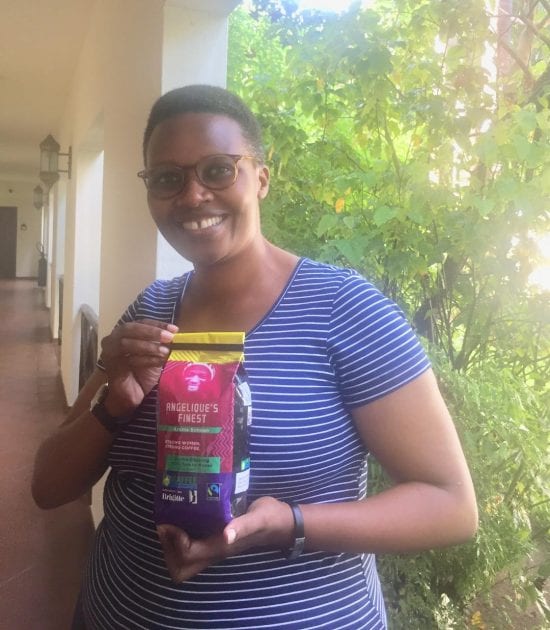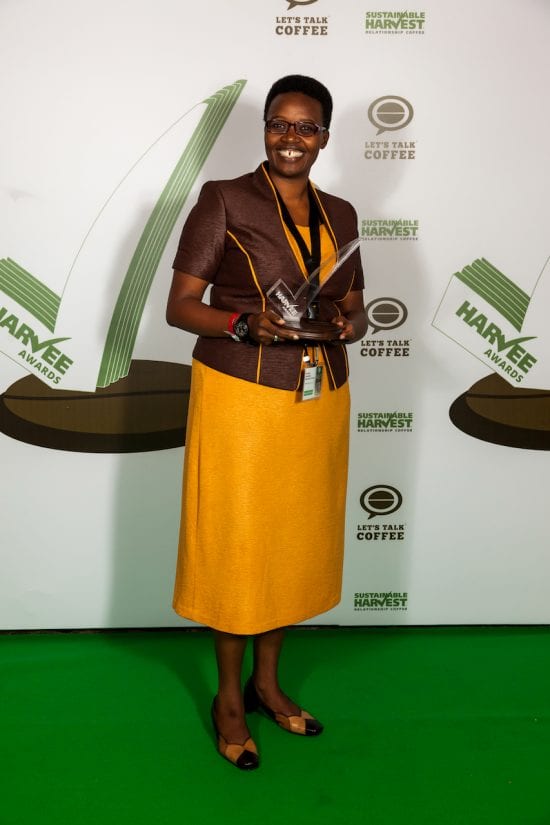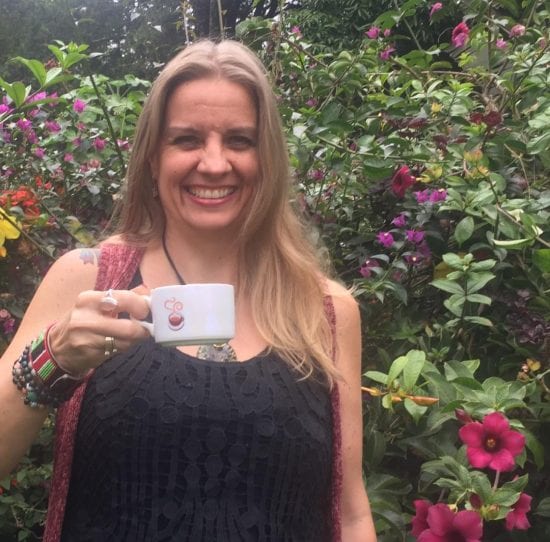
We interview the managing director of Rwandan coffee company Rwashoscco Ltd. about her life’s work in coffee and moving into a position of power within it.
BY ERIKA KOSS
SPECIAL TO BARISTA MAGAZINE ONLINE
Cover photo courtesy of Angelique Karekezi
Angelique Karekezi started her coffee career as an accountant for the Koakaka Coffee Cooperative in Rwanda in 2003, and is now the managing director of Rwashoscco Ltd., as well as the creator of the brand Angelique’s Finest Coffee. Rwashoscco Ltd. is a farmer-owned marketing, exporting, and roasting company that also provides key services to smallholder coffee farmers in Rwanda. It is a limited company incorporated in the Republic of Rwanda that is owned by five cooperatives and one family company. Created in 2005 toward the end of the USAID projects in Rwanda (PEARL and SPREAD), the company handles the marketing and export logistics of Rwanda coffee, and aims to strengthen the management and leadership of cooperatives.
If you live in North America, Europe, or Asia, you can find Rwashoscco coffee sold in various locations, and demand for “Angelique’s Finest” is growing in Germany.

Erika Koss: You’ve worked in coffee for 16 years now, but even before that, your parents were involved in coffee, right?
Angelique Karekezi: Yes, I know coffee from my childhood, and how even though it’s not easy, it’s very important. My father was one of the founders of KOAKAKA cooperative in Southern Rwanda, and he was also a lawyer. My mother was always at home, focused on the land and the children. Growing up, we were seven children, and I’m the last born of the family.
It’s so hard to talk about the genocide, but for those who will read this interview and don’t know, what can you share about what coffee was like before 1994?
What I can say about the coffee business before was that there was only one company assigned to buy coffee from farmers and export it internationally. Coffee was mostly processed at home, sold as parchment. There were no coffee washing stations before.
The tragedy of the genocide was not easy for anyone in our country, and after that, it was a very difficult time. My mother was having trouble paying my school fees, but later, she was able to pay our school fees because of the coffee. My father passed away in 1999, so it was very hard for her to continue to be a coffee farmer as a widow.
How did you first get involved in coffee professionally?
After 2000, the government decided to privatize the coffee sector, and different people started to join the business. The shift began to focus on quality coffee through creating coffee washing stations. This led to different cooperative societies being formed for various USAID projects. Because of that, leaders of a cooperative selected me to help them, since they knew I came from a coffee family, so I understood the everyday life of coffee farmers. My first job was as an accountant, then cooperative manager for three years, 2003 to 2006.
Even though you grew up with coffee, how did working with these international projects and partners affect your view of the world, and the global coffee trade?
It was my first time to meet people from outside Rwanda. I learned a lot, especially the importance of linking farmers to the world market. If they can access this market, it can improve and change their lives, but it’s very hard for most farmers to do this. From 2006-2008, I worked with USAID and with six cooperatives in administration, management, and certification as the Cooperative Technician Development (CTD). Then fair trade was introduced to our country, and I saw that this was one way to add value to our coffee.

How did you become the first woman managing director of Rwashoscco Ltd. in Rwanda?
In 2008, I shifted to Rwashoscco and for six years, I was the chief accountant. For all those years, I was working with cooperatives management, trying to support their work the best way I could. Then the managing director left, so the job was open. The board of directors of the company decided to promote me in this position, even if most other people were discounting me, saying I could not manage that, because my background was as an accountant, and at the time, I did not have my university degree. Even myself, at times, I thought, “This is too hard for me.” But also I thought, “I have to work hard and show that a woman can do this.”
What changed their minds?
In a short time, I managed to handle different issues in company management and set different strategies to increase marketing of the coffee. So then our board of directors and members came and said, “Wow, OK, now we don’t need to look for anyone else.” By 2018, we were shipping 52 containers of coffee, up from 33 containers in 2014.
And all this time, you were also raising your family and going to university!
Yes, my husband and I now have five children, from my firstborn who is 15 years old, to my youngest, who is 3 years old. During those years, I finished my studies at University of Kigali, for my bachelor’s degree in Economics.
We will continue this conversation with Angelique next week.

ABOUT THE AUTHOR
Erika Koss’ coffee career began in 1995 as a barista in San Diego. Now living in Nairobi, Kenya, she is a research associate at the University of Nairobi, a Ph.D. candidate in International Development Studies at Saint Mary’s University in Halifax, Nova Scotia, and an Authorized SCA Trainer. Follow her on Instagram @aworldinyourcup.

